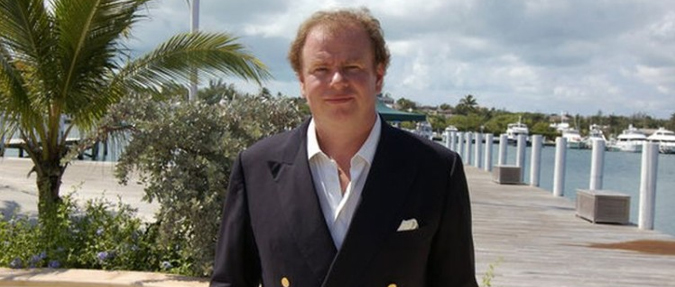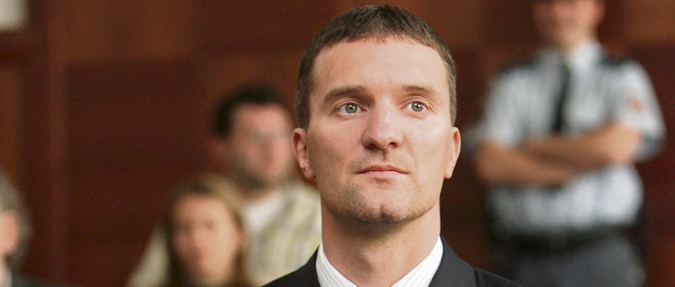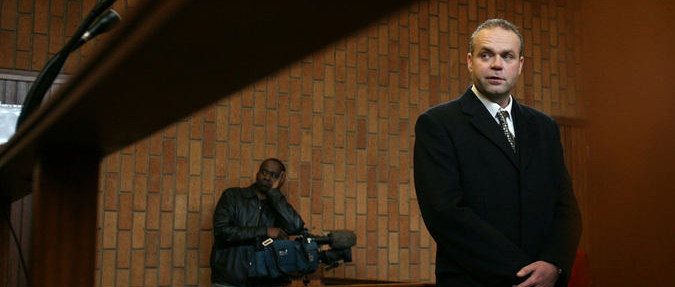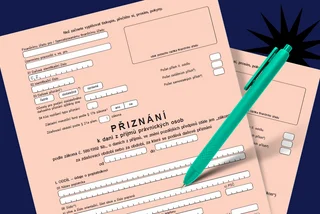The downfall of communism and arrival of capitalism in the Czech Republic created business opportunities for those willing to take the risks. Some of those ventures were legitimate. Others are scrutinized to this day, and the individuals involved have become synonymous with corruption and deceit.
The Pirate
Throughout his life, Viktor Kožený appears to have relied on charm, inflated promises and risky behavior to succeed. He talked his way into studying physics at the University of New Mexico, despite having no background in the subject. Later, he was able to sweet-talk a placement for himself at Harvard University and then a job with a respected London investment bank, Flemmings.
PARTNER ARTICLE

These early successes prepared Kožený for the deal that would have Fortune Magazine dub him, “The Pirate of Prague”. In 1992, the Czechoslovak government introduced a voucher system of privatization. The government issued books of vouchers which people could buy at the time for 35 CZK. These vouchers could then be exchanged for shares in privatized state companies. The plan was to create citizen shareholders.
Kožený, who came back to the country of his birth in 1991, saw an opportunity to get a hold of potentially lucrative shares at low prices. He set up Harvard Průmyslový Holding a.s., (HPH), which has no connection to the university. The company offered people a return ten times the value of their vouchers if they wanted to cash out after a year. With the vouchers Kožený was able to invest in 50 companies. At one point he had control of 15% of the Prague stock market. For those who took up Kožený’s offer and cashed out early it was a windfall.
Problems started soon after that. The same year that the first vouchers were released an agent of the Czechoslovak Intelligence Service, Václav Wallis, was arrested for selling Kožený financial information and personally sensitive details about Czech politicians.
By 1994, Kožený was feeling the heat from this investigation and left the Czech Republic for the Bahamas never to return. However, he still ran HPH until it went into liquidation in 1997. After many years of trying to have him brought to the Czech Republic, Kožený and his partner Boris Vostrý were charged in absentia with deliberately depressing the share value of Sklo Union Teplice, whose shares HPH owned. This action resulted in the company’s assets being sold for 11.5 billion CZK. Last year, the two men were sentenced in absentia to 10 years for criminal fraud. Kožený has also been charged with bribery by a US court for his involvement in the privatization scheme of Azeri national assets.
The Shopkeeper
Tomáš Pitr had what seems like an innocent start in business: opening a grocery store. However, he made his first fortune by buying duty free rum from the Tuzex store, which he then sold on to private and state firms at a significant mark up. Later, he made money from the rent of commercial properties.

Apart from wealth, Pitr amassed a substantial debt in unpaid taxes: seven million crowns worth to be precise. According to Respekt magazine, Pitr’s reason for not paying was that he wasn’t used to it.
Pitr’s largest and most notorious business acquisition was Setuza, a company which, through its subsidiaries, refined plant-based oils. Pitr’s then-company Český olej was able to buy Setuza with the “blessing” of former agricultural minister and current senator for ČSSD, Jaroslav Palas. However, in an interview with Václav Moravec for Czech BBC, Pitr denied that he had a “close or friendly relationship” with Palas. In the same interview Moravec questioned Pitr about his connection with other politicians. Pitr suggested they were minimal.
The former Prime Minister and retired leader of the Social Democrats, Jiří Paroubek, offered a different perspective on Pitr’s relationship to his former party. He accused Pitr of trying to ensure the failure of ČSSD. Moreover, as quoted in the same article, Paroubek named Jan Kubice (a current independent interior minister) as being under Pitr’s control. Kubice referred to this as a “bunch of drivel”. It should also be pointed out that when ČSSD was in government and distributing licenses for the production of bio-fuels, one of the beneficiaries was Pitr.
Whether Pitr’s political connections were actual or merely apparent, he was still sentenced to five years in prison in 2006 for tax evasion. The Supreme Court in Prague subsequently reduced his original sentence by three and half years. Three years later, Pitr and his accomplices were charged with illegally moving shares of Setuza and Milo Surovárny from the company Agrocredit which caused 700 million in damages. He was sentenced in abstentia.
Last year, Pitr’s luck ran out and he was arrested on the ski slopes in St. Moritz, Switzerland. This year, Pitr lost his appeal against an extradition order to have him brought to the Czech Republic to serve his time.
The Runaway
At one stage, Radovan Krejčíř was known as one of the richest Czechs. Today, he is more famous for how he avoided arrest and fled the country. On the morning of June 18th, 2005 a team of 16 police with then-public prosecutor Jaroslav Dolejší raided Krejčíř’s villa in Černošice. During the search, Krejčíř got into his car and made his getaway.

According to the official version, Krejčíř’s villa was being searched to find evidence for tax evasion and conspiracy to commit murder. The police explained his escape on the grounds that they were unable to effectively guard Krejčíř due to fatigue brought on by the lengthy search.
In an interview with iDnes (in Czech), Krejčíř claimed the police let him go.
He said the police came into the house while he was still asleep, woke him and handcuffed him. The handcuffs were later removed and he claims that he was not arrested nor were any charges laid. The public prosecutor, Jaroslav Dolejší, told him that they were only looking for a promissory note apparently between Konečný and former Prime Minister Stanislav Gross.
During the search, Krejčíř dressed and moved around. He contacted his wife, who was upstairs with their son and the son’s friend. He also claimed that the police drunk a coffee and played with his dog. An officer then asked him to show him the toilet. Krejčíř used this oportunity to leave by a back gate. He also claimed he was given back his passport, which had been placed in a sealed bag by Dolejší, who denies this.
From the Czech Republic, Krejčíř went to Turkey, Dubai, the Seychelles, Madagascar and finally South Africa, where he remains to this day. He was arrested for using a false passport but was later released.
To this day, the names of the three men provoke strong reactions. For many, they are symbols of the pervasiveness of corruption which continues to affect the Czech Republic.
What are your thoughts?
Related articles












 Reading time: 5 minutes
Reading time: 5 minutes 


























